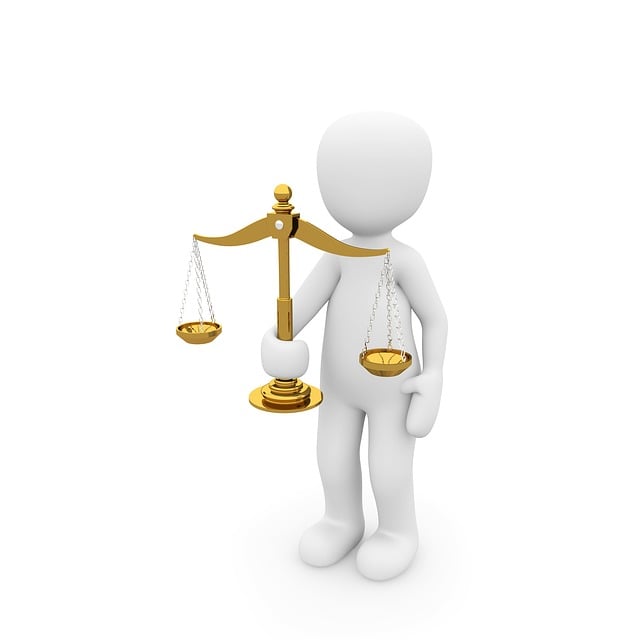The burden of proof is a critical factor in financial fraud cases, significantly impacting verdicts. In white-collar and economic crimes like embezzlement and investment scams, prosecutors must present compelling evidence to meet the high legal standard, ensuring justice while mitigating risks of wrongful convictions. This challenges defense attorneys to create strategic arguments, leading to unpredictable outcomes. Effective burden of proof strategies can benefit defendants, especially in complex cases where early detection through audits and transparent reporting is crucial for preventive measures and robust regulatory frameworks. Understanding this dynamic is key to navigating financial scam trials and deterring fraudulent practices.
Fraudulent financial practices pose a significant threat to individuals and economies alike. This article delves into the intricate world of financial fraud, exploring its various schemes and legal implications. We analyze how the burden of proof plays a pivotal role in criminal cases, influencing verdicts and the rights of accused individuals. Through real-world case studies, we assess the effectiveness of current strategies and propose strengthening preventive measures and regulatory frameworks to combat this pervasive issue, emphasizing the impact of burden of proof on financial scam outcomes.
- Understanding Fraudulent Financial Practices: Definition and Common Schemes
- The Role of Burden of Proof in Criminal Cases: A Legal Perspective
- Impact of Burdenshifting on Accused Individuals: Rights and Challenges
- Case Studies: Examining the Effectiveness of Burden of Proof in Financial Scams
- Preventive Measures and Regulatory Frameworks: Strengthening Defense Against Fraud
Understanding Fraudulent Financial Practices: Definition and Common Schemes
Fraudulent financial practices refer to a wide range of illegal activities designed to deceive individuals or organizations for personal gain. These practices can take many forms, from simple misrepresentations to complex schemes involving manipulation of financial records and false reporting. Understanding what constitutes fraudulent behavior is crucial for both deterrence and effective prosecution. The burden of proof plays a pivotal role in determining the outcome of such cases, as it dictates the level of certainty required to convict perpetrators.
Common financial fraud schemes include embezzlement, where insiders misappropriate funds, and investment scams, where false promises of high returns lure unsuspecting investors. Additionally, white-collar and economic crimes encompass a spectrum of activities, affecting both corporate and individual clients. Effective detection and prosecution require meticulous investigation, robust evidence collection, and a deep understanding of the respective business landscapes. The burden of proof impacts verdicts by setting a threshold for what constitutes beyond a reasonable doubt, thereby shaping the strategies employed by defense and prosecution teams alike.
The Role of Burden of Proof in Criminal Cases: A Legal Perspective
In criminal trials, particularly in high-stakes cases where millions are at stake and reputations are on the line, understanding the role of burden of proof is paramount. The burden of proof lies with the prosecution to present compelling evidence that overcomes any reasonable doubt. This legal principle is a cornerstone of fair adjudication, ensuring that individuals accused of crimes are proven guilty beyond a shadow of doubt. In fraudulent financial cases, where complex schemes and intricate accounting can create confusion, this standard becomes even more critical.
The impact of the burden of proof on verdicts cannot be overstated. It acts as a safeguard against wrongful convictions and ensures that the guilt or innocence of an individual is determined based on substantial evidence and not mere speculation. Across the country, courts have consistently emphasized the importance of this legal standard in maintaining the integrity of the justice system, especially in cases involving sophisticated financial fraud. By requiring prosecutors to meet this high threshold, the burden of proof plays a crucial role in avoiding indictment for individuals who may be accused incorrectly, protecting them from the life-altering consequences of a conviction.
Impact of Burdenshifting on Accused Individuals: Rights and Challenges
The burden of proof in fraudulent financial practices cases significantly influences the outcomes, particularly for accused individuals. This concept shifts the onus from proving innocence to presenting a compelling defense, which can be overwhelming. When facing high-stakes cases, the accused often find themselves at a disadvantage, especially when dealing with complex financial matters. The complexity of these cases, coupled with the need to navigate jury trials, presents unique challenges.
For his clients, navigating this landscape requires a thorough understanding of legal procedures and evidence presentation. Effective representation involves strategic planning to counter the prosecution’s burden of proof, ensuring that every detail is scrutinized. This process is crucial in protecting the rights of the accused and achieving favorable verdicts in what are often stressful and emotionally charged situations.
Case Studies: Examining the Effectiveness of Burden of Proof in Financial Scams
The burden of proof is a critical aspect that significantly influences the outcomes of financial scam trials. Case studies on white-collar and economic crimes reveal that the way this burden is handled can determine whether defendants walk free or face convictions in high-stakes cases. In many instances, the complexity of these crimes means the onus of proving guilt lies heavily on prosecutors. This challenges defense attorneys to craft compelling arguments, often resulting in surprising verdicts.
Effective use of the burden of proof strategy can lead to winning challenging defense verdicts. Prosecutors must provide irrefutable evidence and connect all dots to establish a clear chain of fraud. Conversely, well-prepared defenses can exploit procedural gaps, question witness credibility, or highlight inconsistencies in the prosecution’s narrative, ultimately shaping the jury’s perception and reaching favorable outcomes, especially in cases where the stakes are high.
Preventive Measures and Regulatory Frameworks: Strengthening Defense Against Fraud
The fight against fraudulent financial practices requires a robust combination of preventive measures and a strong regulatory framework. One key aspect is establishing clear guidelines and regulations that institutions must adhere to, with stringent penalties for non-compliance. This includes regular audits and transparent reporting, empowering regulators to detect anomalies and potential red flags early on.
Additionally, the burden of proof plays a significant role in shaping verdicts in high-stakes cases involving white-collar crime. Effective regulatory frameworks ensure that the onus is on organizations to demonstrate integrity and compliance, making it harder for fraudulent activities to go unnoticed or unpunished. By achieving extraordinary results in these cases, regulatory bodies send a powerful message: fraud will not be tolerated, and those who engage in such practices will face severe consequences.
Understanding how the burden of proof influences verdicts is paramount in combating fraudulent financial practices. By examining legal perspectives, impacted individuals’ rights, and the effectiveness of case studies, we can discern strategies to strengthen defenses against fraud. Preventive measures and robust regulatory frameworks are essential to enhance transparency and deter malicious schemes, ultimately safeguarding financial systems from unscrupulous actors.






